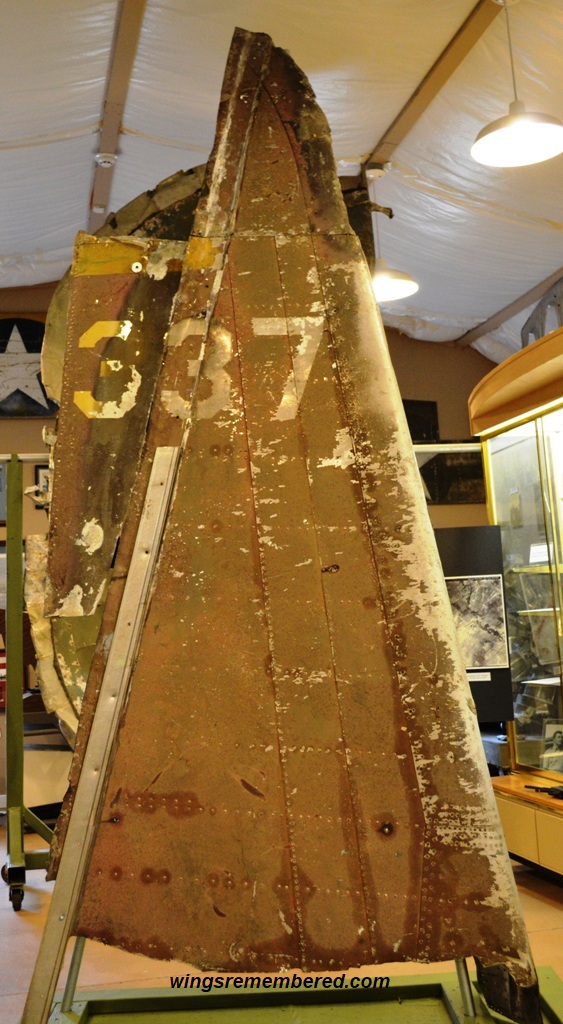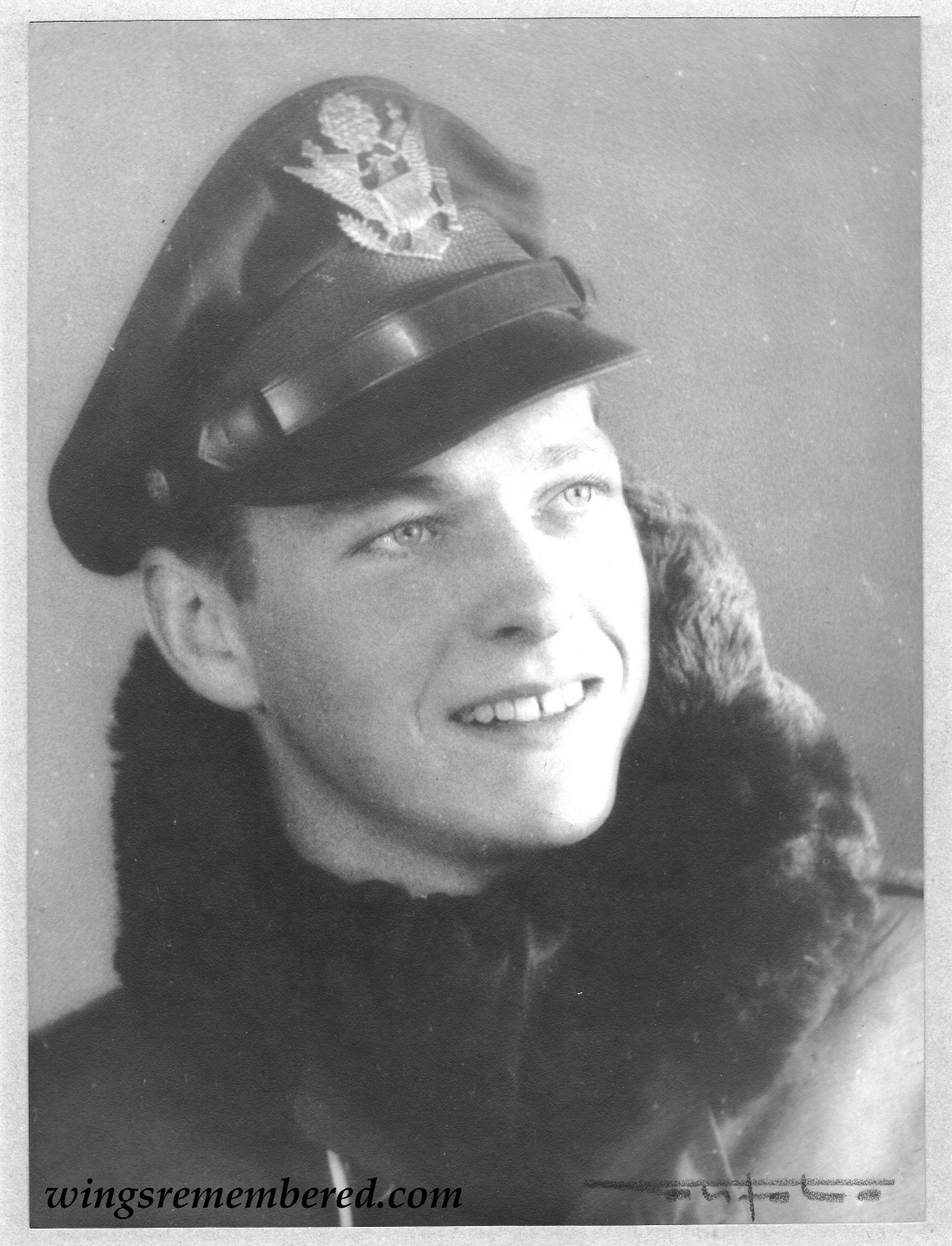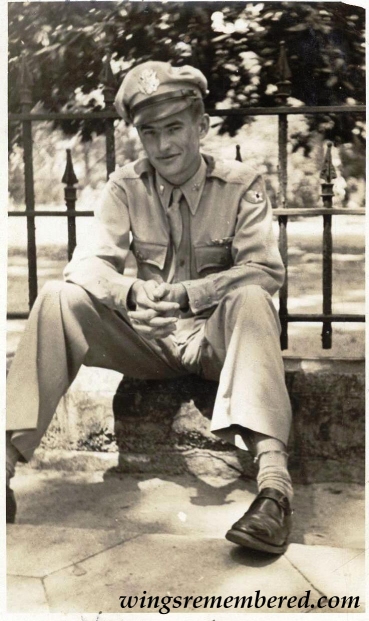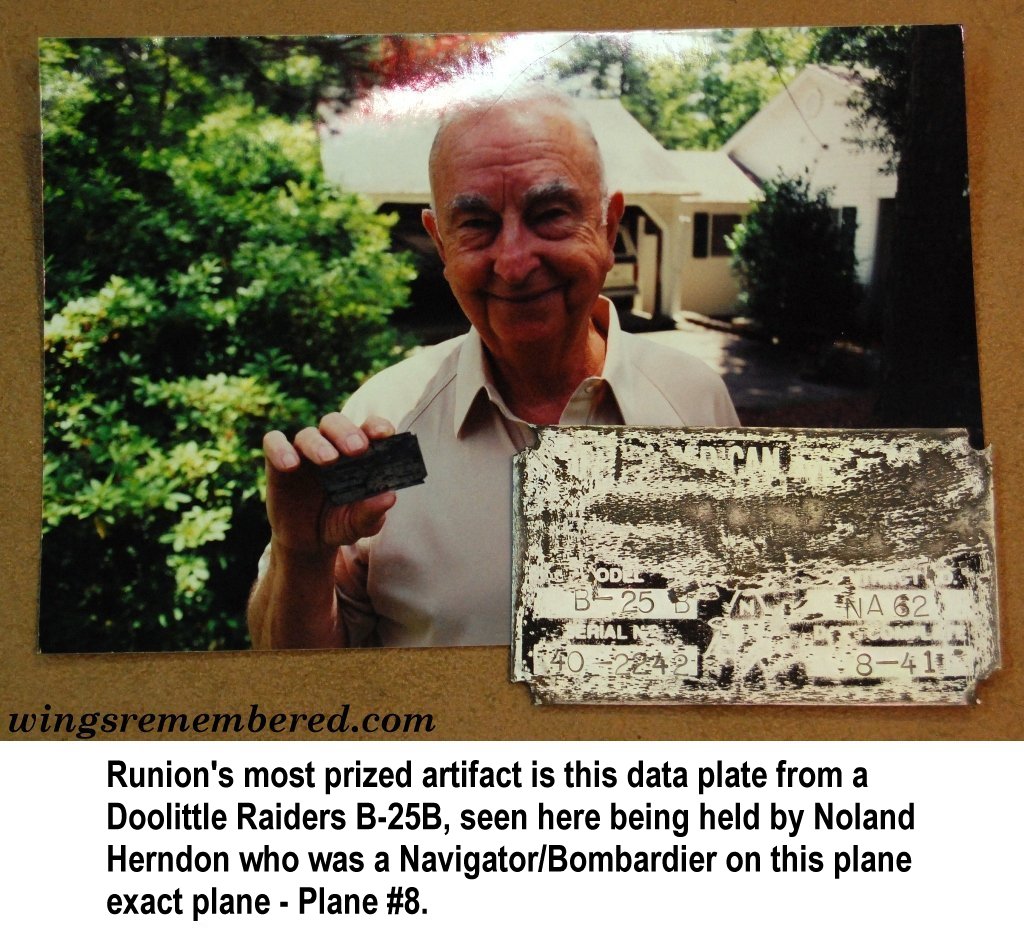Displays
Charles C. Bragg Pilot L-19 I Corps Artillery Korean War
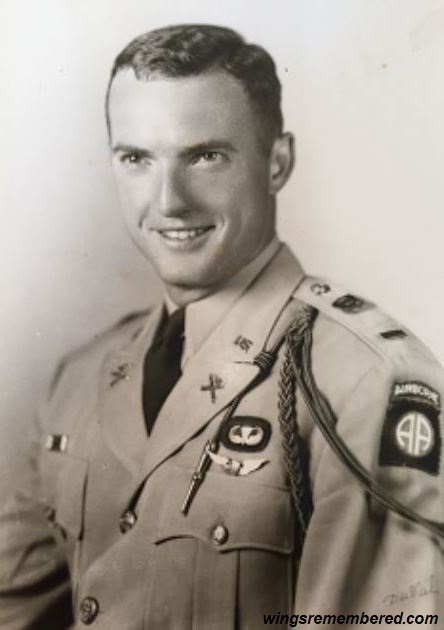
Lt Bragg volunteered to fly his L-19 aircraft low over a large concentration of active enemy anti-aircraft artillery deep within enemy territory so as to decoy the crews into the open in order that they might be destroyed by the I Corps Artillery. Due to the extreme hazards involved with this mission he flew without an observer.
Read more: Charles C. Bragg Pilot L-19 I Corps Artillery Korean War
William C. Littlewood Pilot F6C 42-103460 111th Tactical Reconnaissance Squadron
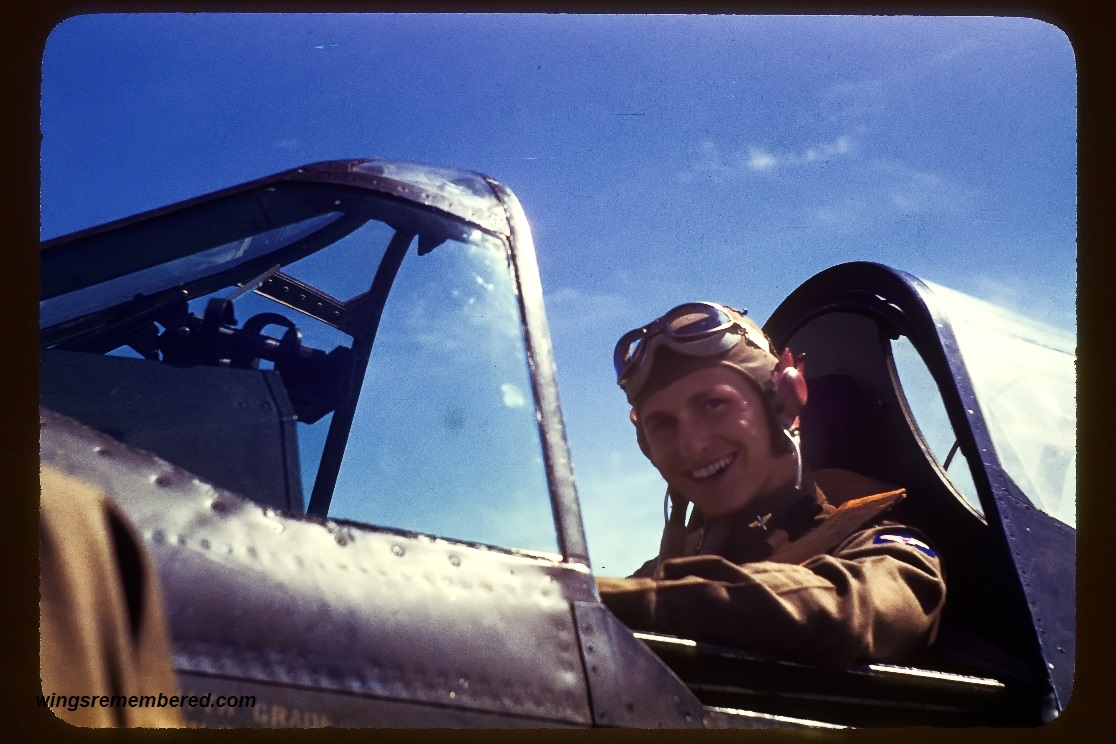
On 25 December 1944 he was flying a F6C (recon version of the P-51C) serial number 42-103460. The plane had two nose art names, “Rome Gnome” and "Weenie Merchant 2". This was his 100th mission. He departed from Azelot France on a combat reconnaissance mission in the Frankfurt Germany area.
Read more: William C. Littlewood Pilot F6C 42-103460 111th Tactical Reconnaissance Squadron
Gene Roddenberry, Co-Pilot, B-17 41-2644 LOS LOBOS of the 394th BS
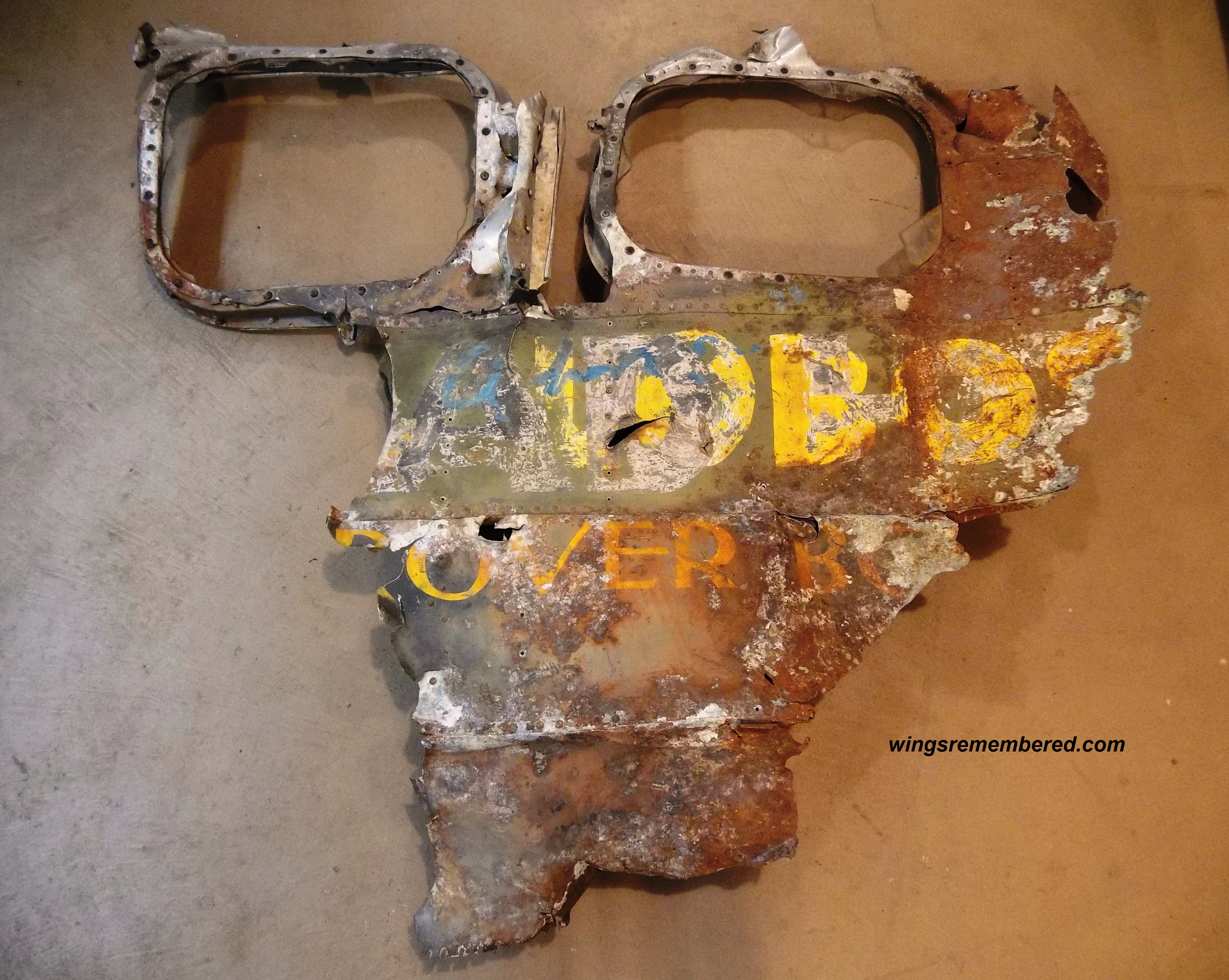 Gene Roddenberry flew over 80 missions, most of which would have been as Bill Ripley's co-pilot on LOS LOBOS. We have had this section of nose art from LOS LOBOS for more than 20 years. During this time we had not been able to positively identify the B-17 that this nose art section was from. That changed recently when author and historian Steve Birdsall contacted with this information
Gene Roddenberry flew over 80 missions, most of which would have been as Bill Ripley's co-pilot on LOS LOBOS. We have had this section of nose art from LOS LOBOS for more than 20 years. During this time we had not been able to positively identify the B-17 that this nose art section was from. That changed recently when author and historian Steve Birdsall contacted with this information
Read more: Gene Roddenberry, Co-Pilot, B-17 41-2644 LOS LOBOS of the 394th BS
William Lassiter Pilot P-38 44-25006 82nd Fighter Group 96th Fighter Squadron
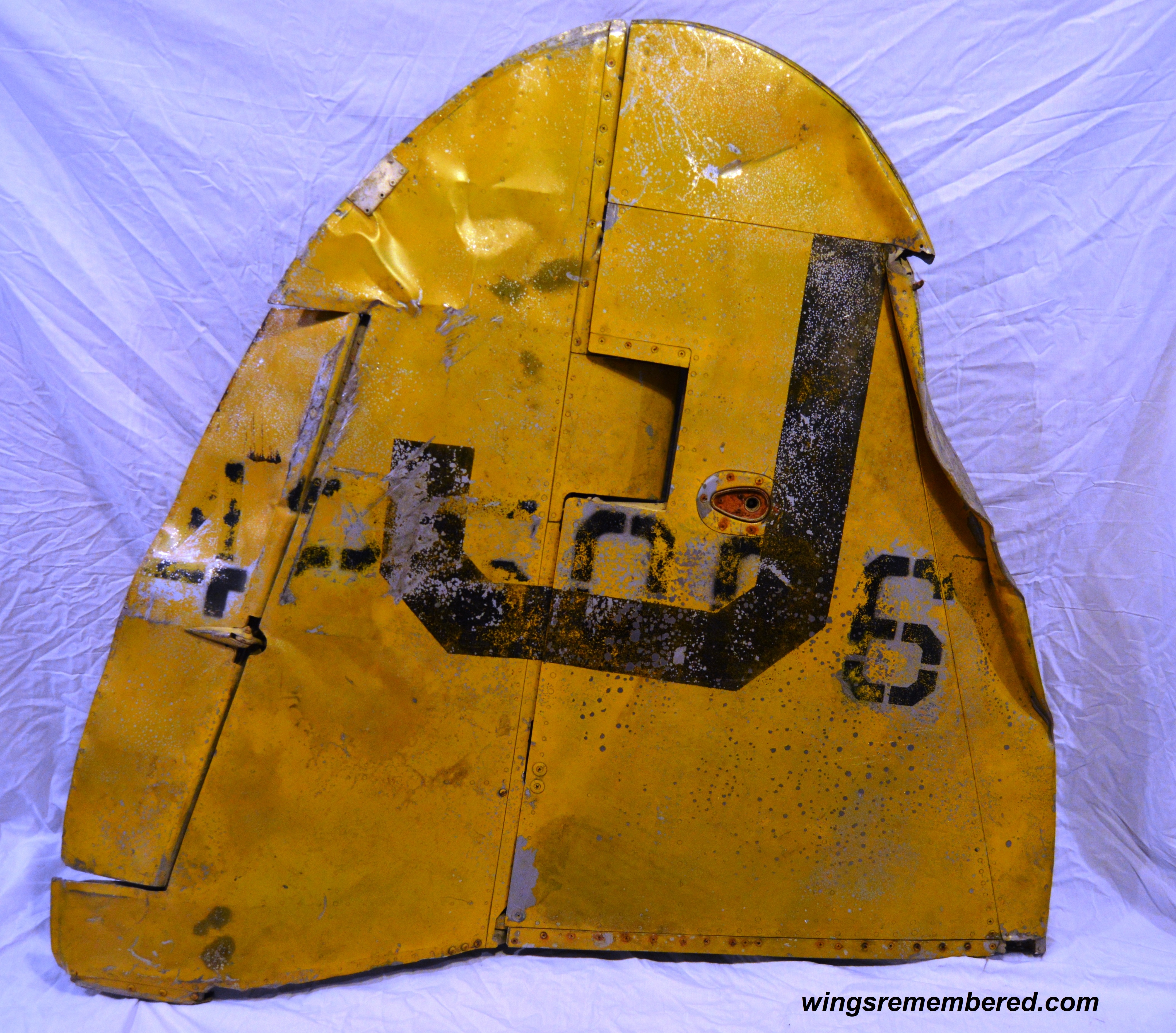 Bill’s P-38 was hit by flak that was being fired from a nearby Airdrome. His plane suffered a lot of damage including the loss an engine from the flak. He radioed his wing man Kenneth Herrick telling him that he was going to have to make a crash landing.
Bill’s P-38 was hit by flak that was being fired from a nearby Airdrome. His plane suffered a lot of damage including the loss an engine from the flak. He radioed his wing man Kenneth Herrick telling him that he was going to have to make a crash landing.
Read more: William Lassiter Pilot P-38 44-25006 82nd Fighter Group 96th Fighter Squadron
George Kavanaugh, 485th Bomb Group and the Tuskegee Airmen of the 332nd Fighter Group
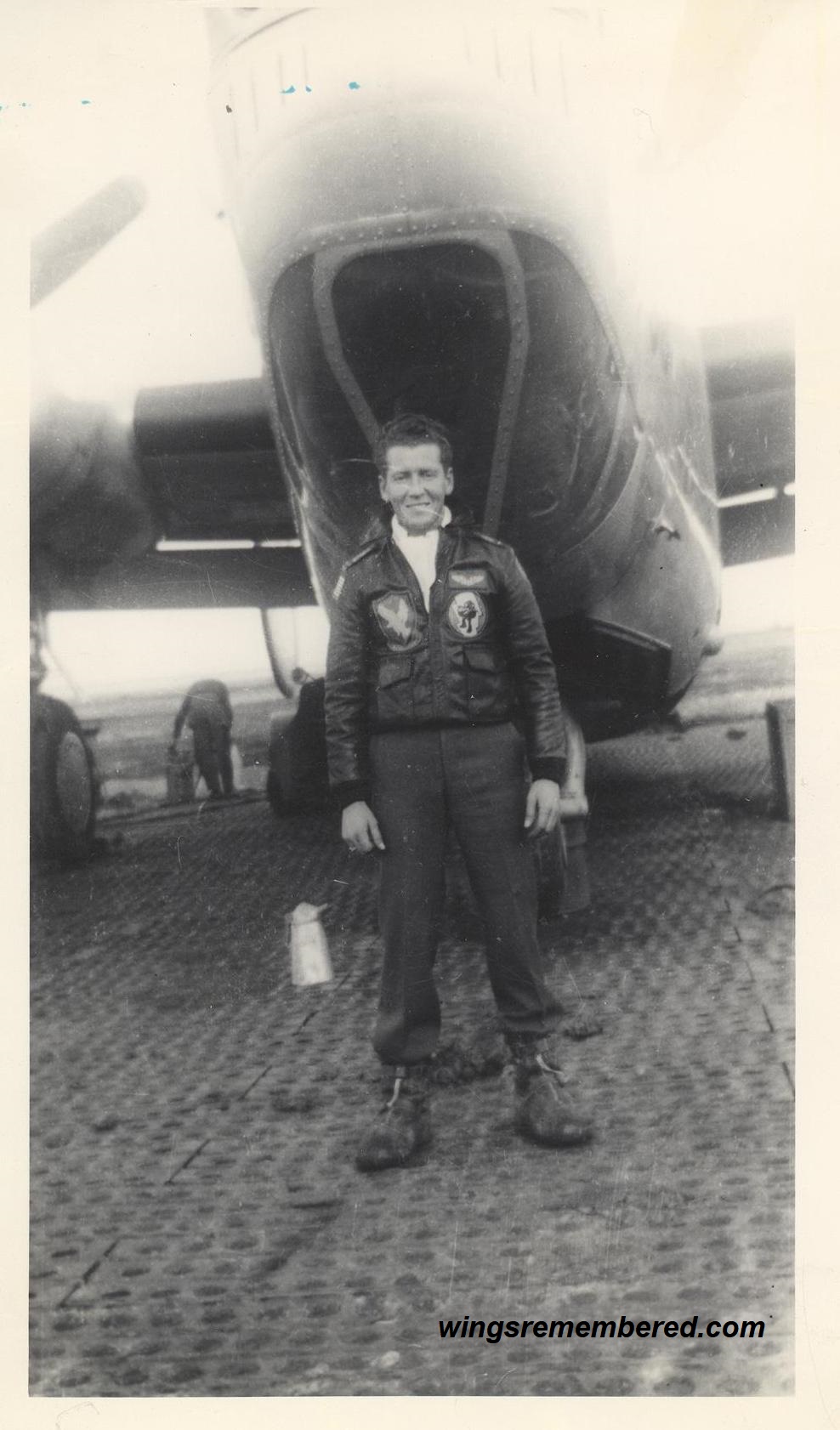 George Kavanaugh was a radio operator/gunner with the 829th Bomb Squadron of the 485th Bomb Group. He flew a total of 33 missions. His last mission was on 25 April 1945, and the target was the marshalling yards at Linz, Austria.
George Kavanaugh was a radio operator/gunner with the 829th Bomb Squadron of the 485th Bomb Group. He flew a total of 33 missions. His last mission was on 25 April 1945, and the target was the marshalling yards at Linz, Austria.
Read more: George Kavanaugh, 485th Bomb Group and the Tuskegee Airmen of the 332nd Fighter Group
Bob Lehnhausen B-24 Pilot 44th BG
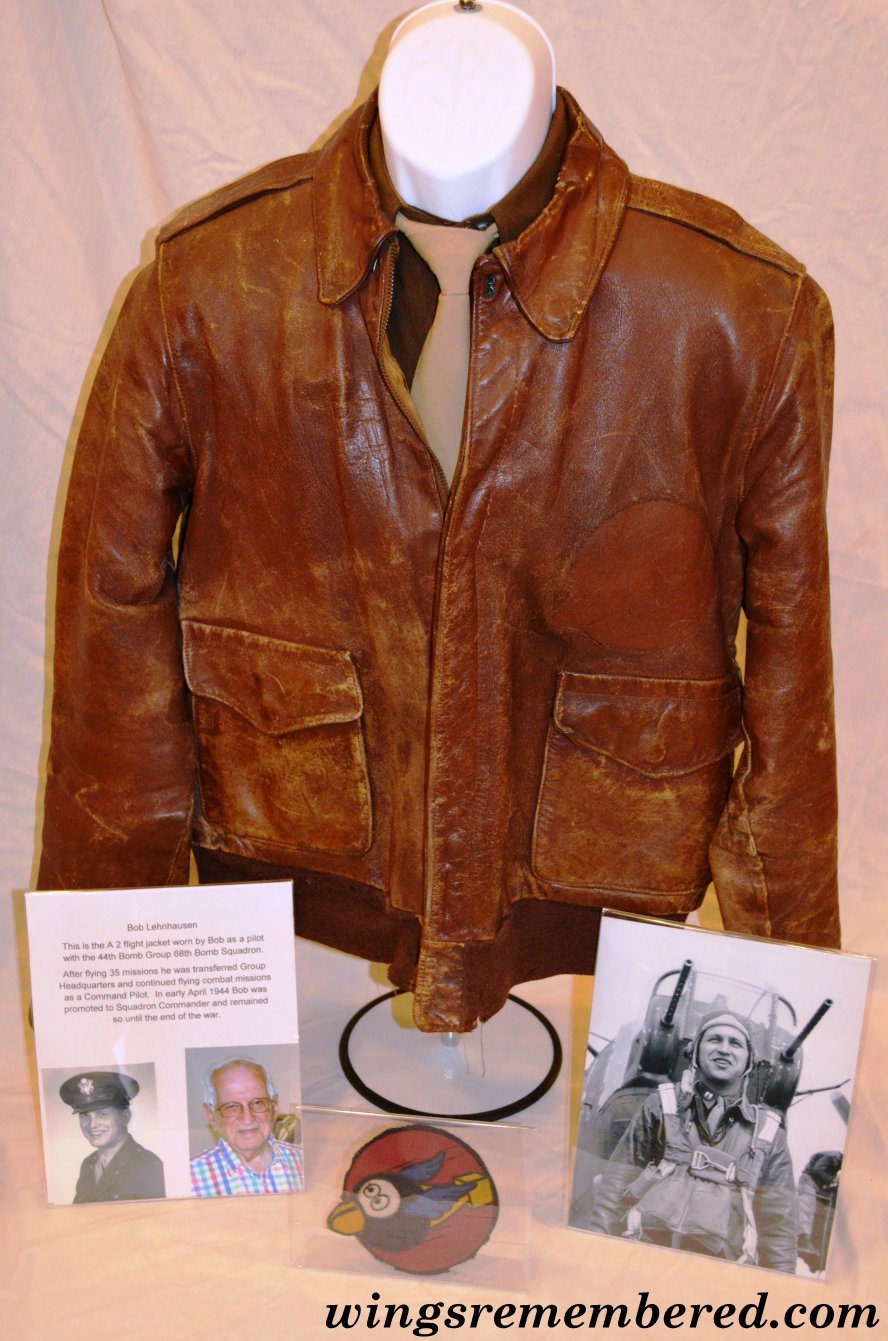 Bob Lehnhausen was born on 11 September 1919 to Frank and Florence Lehnhausen of Peoria, IL. In May of 1941, he entered the Army Air Forces Cadet Program. After the successful completion of his pilot training, Bob joined the 44th Bomb Group, 68th Bomb Squadron of the 8th Air Force.
Bob Lehnhausen was born on 11 September 1919 to Frank and Florence Lehnhausen of Peoria, IL. In May of 1941, he entered the Army Air Forces Cadet Program. After the successful completion of his pilot training, Bob joined the 44th Bomb Group, 68th Bomb Squadron of the 8th Air Force.
Jack W Haggard Pilot P-38 42-67473 "Second Front" 474th Fighter Group
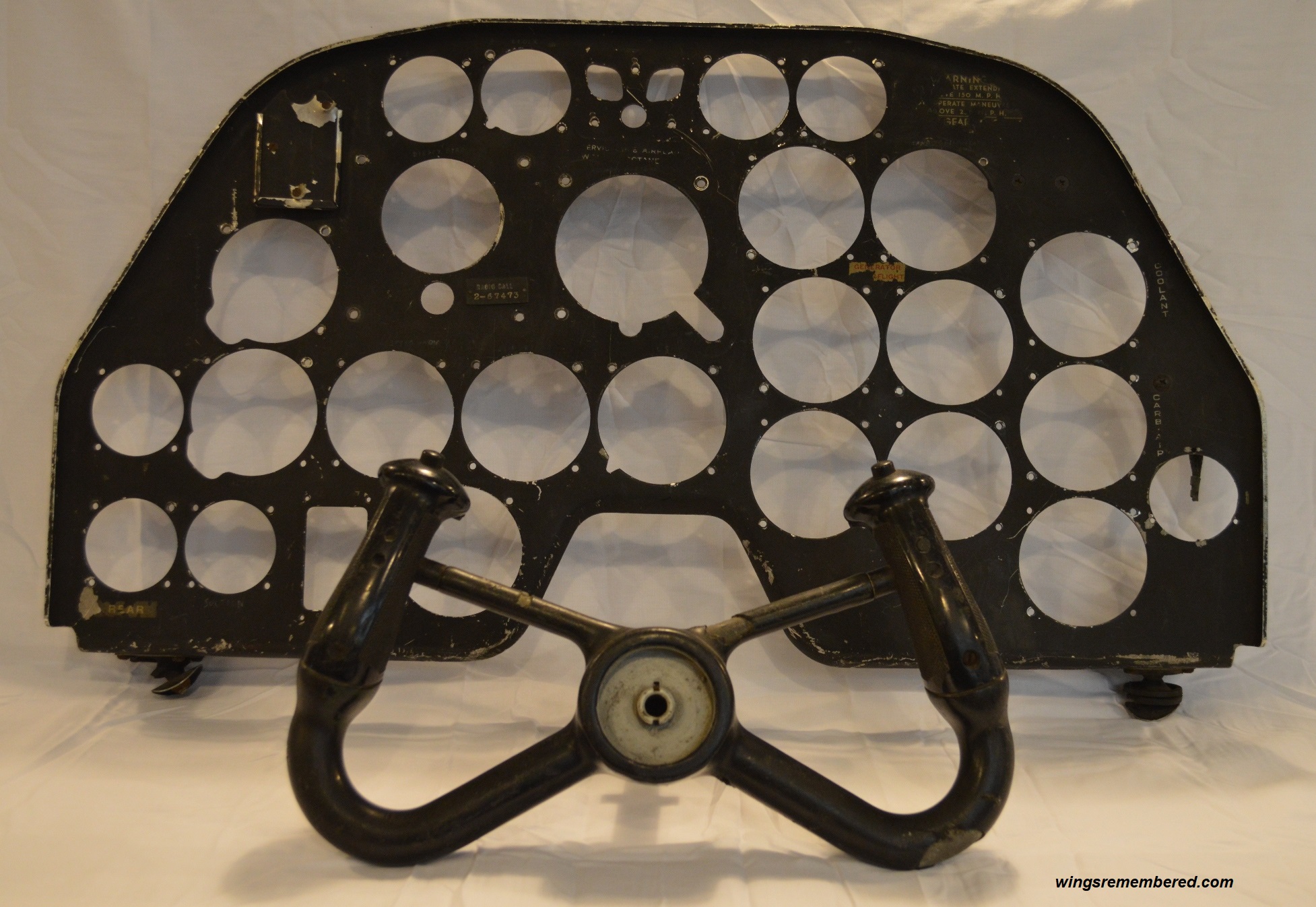 On 11 October 1944 Jack was flying P-38 serial number 42-67473 named "Second Front." On this day at 1640 hours (4:40PM) he was returning to base in a rain storm. Due to poor visibility he landed approximately 75 yards short of the runway, the aircraft bounced and settled back down, nose wheel first. The nose wheel collapsed and the aircraft skidded to a stop on its nose. Jack was not injured but the aircraft suffered a lot of damage.
On 11 October 1944 Jack was flying P-38 serial number 42-67473 named "Second Front." On this day at 1640 hours (4:40PM) he was returning to base in a rain storm. Due to poor visibility he landed approximately 75 yards short of the runway, the aircraft bounced and settled back down, nose wheel first. The nose wheel collapsed and the aircraft skidded to a stop on its nose. Jack was not injured but the aircraft suffered a lot of damage.
Read more: Jack W Haggard Pilot P-38 42-67473 "Second Front" 474th Fighter Group
391st Bomb Group B-26 43-34337 named Homesick Pappy
This B-26 was shot down on 24 February 1945 with the loss of the entire crew. They were Gwen T McPherson (pilot), Dan W Chaney (copilot,) Earl R LaPan (bombardier / navigator,) Wilbur N Beasley (gunner,) Edward Klacik Flight (engineer / gunner,) and John H Boettcher (gunner.) This mission was number 237 for the bomb group and the primary target was a railroad bridge in Irlich, Germany.
Read more: 391st Bomb Group B-26 43-34337 named Homesick Pappy
John Read P-47 42-28460 Pilot 365th Fighter Group the Hell Hawks
On 13 September 1944 John was flying P-47 serial number 42-28460. He and his fellow pilots were following train tracks looking for targets of opportunity near Arzfeld, Germany. The tracks lead into a valley with several water towers located near the tracks. As he was flying through the valley German antiaircraft guns opened up on him hitting his plane. Because of the damage to his P-47, John ended up crash landing his P-47 near Logbierme, Belgium. As the plane slid to a stop he quickly climbed out of the cockpit closing the canopy and ran for the woods.
Read more: John Read P-47 42-28460 Pilot 365th Fighter Group the Hell Hawks
Adrian Vernon Knox P-38 42-68081 Pilot 474th Fighter Group
Vernon was born on 10 November 1921. He was one of seven brothers and sisters. At the age of 16 he was accepted into Davidson College located in Davidson, NC. He joined the Army Air Force in 1942 and after earning his pilots wings became an instructor at Spence Field in Georgia. Later he decided to enter into the war as a pilot. Vernon was engaged to his childhood sweetheart Hilda Mayes when he left for Europe.
Read more: Adrian Vernon Knox P-38 42-68081 Pilot 474th Fighter Group
Wings Remembered Article from Aviation History Magazine
Charles Runion's Tennessee aviation museum is filled with what most folks would consider junk, but he's no hoarder. Wings Remembered is an unparalleled collection of mainly U.S. World War II artifacts recovered from crash sites and through donations of flight gear, uniforms, letters, diaries, medals and photos from the families of long-gone veterans. Cockpit sections, engine parts, a Norden bombsight and bombardier's compartment, rusty landing gear, crumpled wing and fuselage skins with insignias still visible… Runion has everything from a 12-foot-tall B-24 vertical stabilizer to an R-2800 valve rocker arm from a P-47 shot down during the Battle of the Bulge.
Read more: Wings Remembered Article from Aviation History Magazine
John Ryan Pilot Air America
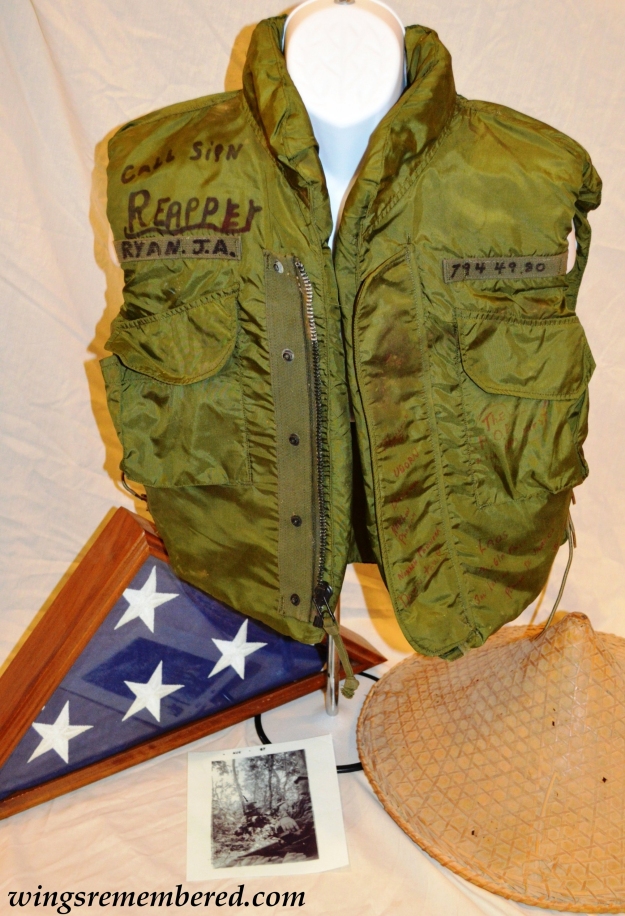 John Ryan was a pilot with Air America during the Vietnam War. He was also an Aviation Historian and Archeologist. He searched for wartime aircraft crash sites here in the US, in Europe, and in Russia. He continued this work until he passed away in 1999. Among the items on display is the flak jacket John used during his time with Air America.
John Ryan was a pilot with Air America during the Vietnam War. He was also an Aviation Historian and Archeologist. He searched for wartime aircraft crash sites here in the US, in Europe, and in Russia. He continued this work until he passed away in 1999. Among the items on display is the flak jacket John used during his time with Air America.Norden Bombsight
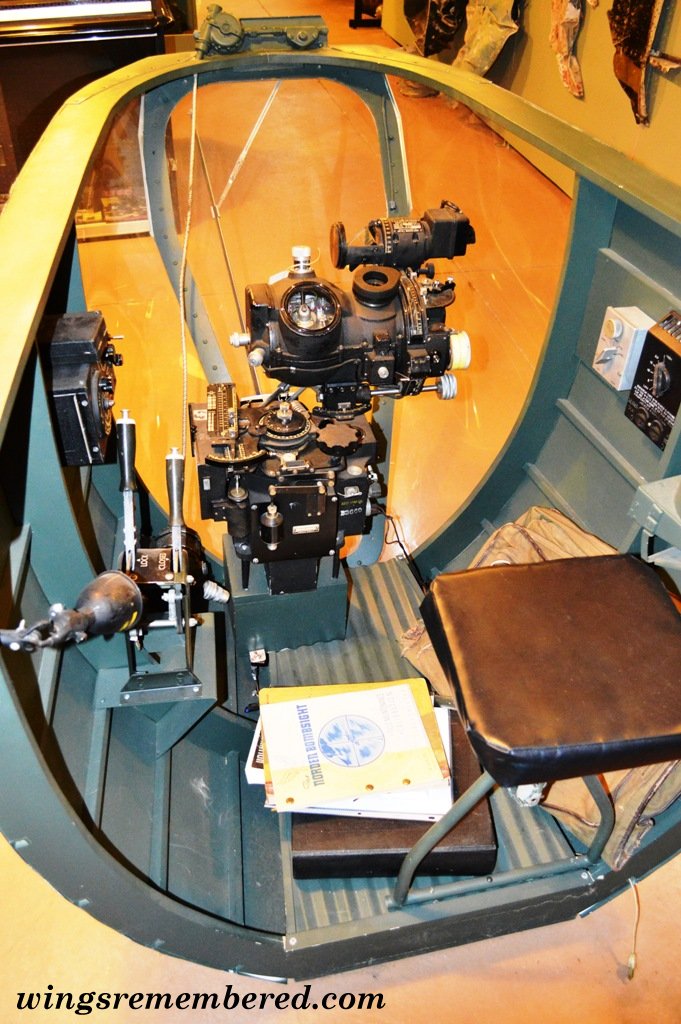 The Norden bombsight was a tachometric bombsight used by the United States Army Air Forces (USAAF) and the United States Navy during World War II, and the United States Air Force in the Korean and the Vietnam Wars to aid the crew of bomber aircraft in dropping bombs accurately. Key to the operation of the Norden were two features; an analog computer that constantly calculated the bomb's trajectory based on current flight conditions, and a linkage to the bomber's autopilot that let it react quickly and accurately to changes in the wind or other effects.
The Norden bombsight was a tachometric bombsight used by the United States Army Air Forces (USAAF) and the United States Navy during World War II, and the United States Air Force in the Korean and the Vietnam Wars to aid the crew of bomber aircraft in dropping bombs accurately. Key to the operation of the Norden were two features; an analog computer that constantly calculated the bomb's trajectory based on current flight conditions, and a linkage to the bomber's autopilot that let it react quickly and accurately to changes in the wind or other effects.
Captured B-17 303rd BG - 41-24585 "Wulfe Hund"
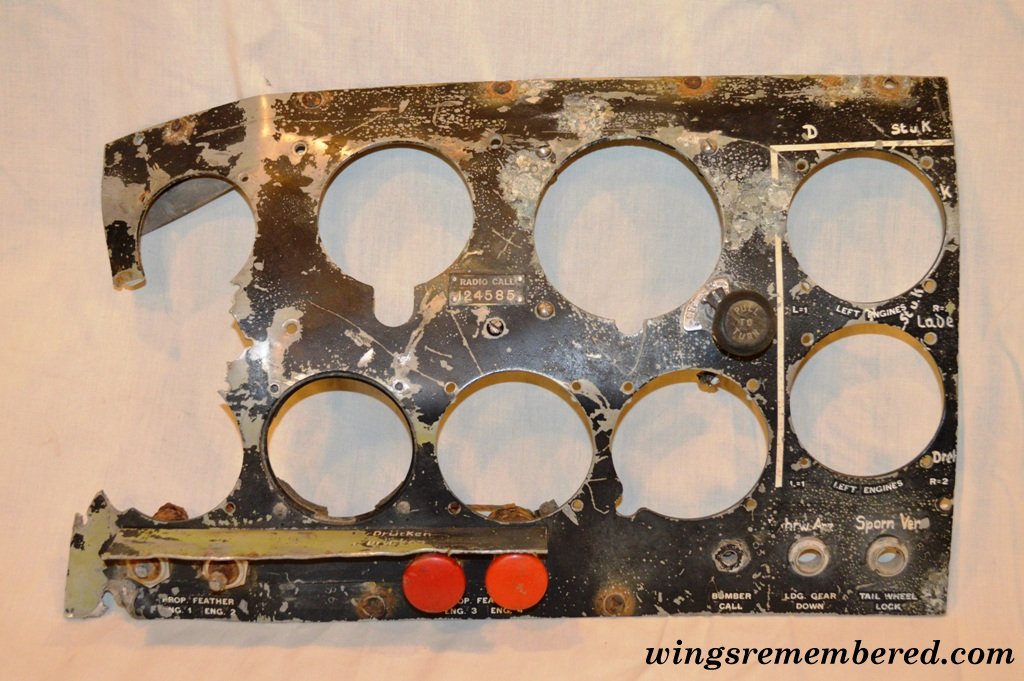 This B-17 instrument panel section was recovered from B-17F serial number #41-24585 of the 303rd Bomb Group. The plane crash landed in a field near Melun, France on 12 December 1942. The Germans were able to repair it and fly it to Germany. This is reported to be the first B-17 the Germans were able capture intact and fly again.
This B-17 instrument panel section was recovered from B-17F serial number #41-24585 of the 303rd Bomb Group. The plane crash landed in a field near Melun, France on 12 December 1942. The Germans were able to repair it and fly it to Germany. This is reported to be the first B-17 the Germans were able capture intact and fly again.
44th Bomb Group B-24 Black Jack The Crew And Their Legacy
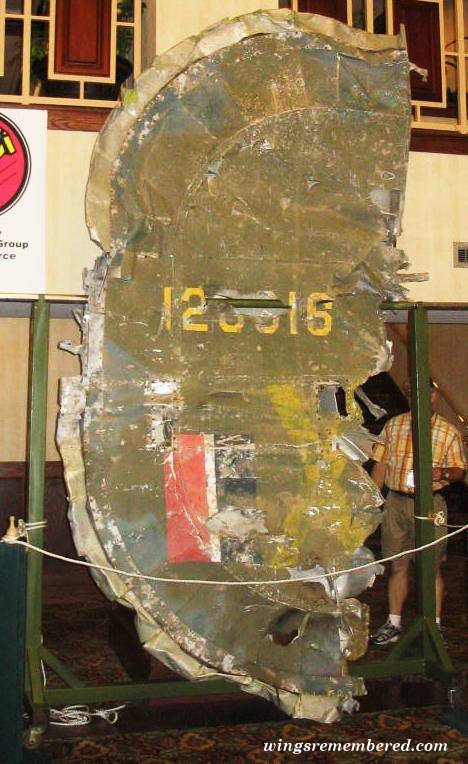
On 1 October 1943 the 44th Bomb Groups mission was to bomb the Messerschmitt aircraft factory located at Wiener Neustadt, Austria. B-24 serial number 41-23816, named Black Jack of the 68th squadron was hit by flak shortly after dropping their bomb load while turning away from the target. The plane was on fire and crashed shortly after being hit. Of the ten man crew five survived. Here are the crew and their stories. May we never forget.
Read more: 44th Bomb Group B-24 Black Jack The Crew And Their Legacy
44th Bomb Group B-24 Marcia Ann
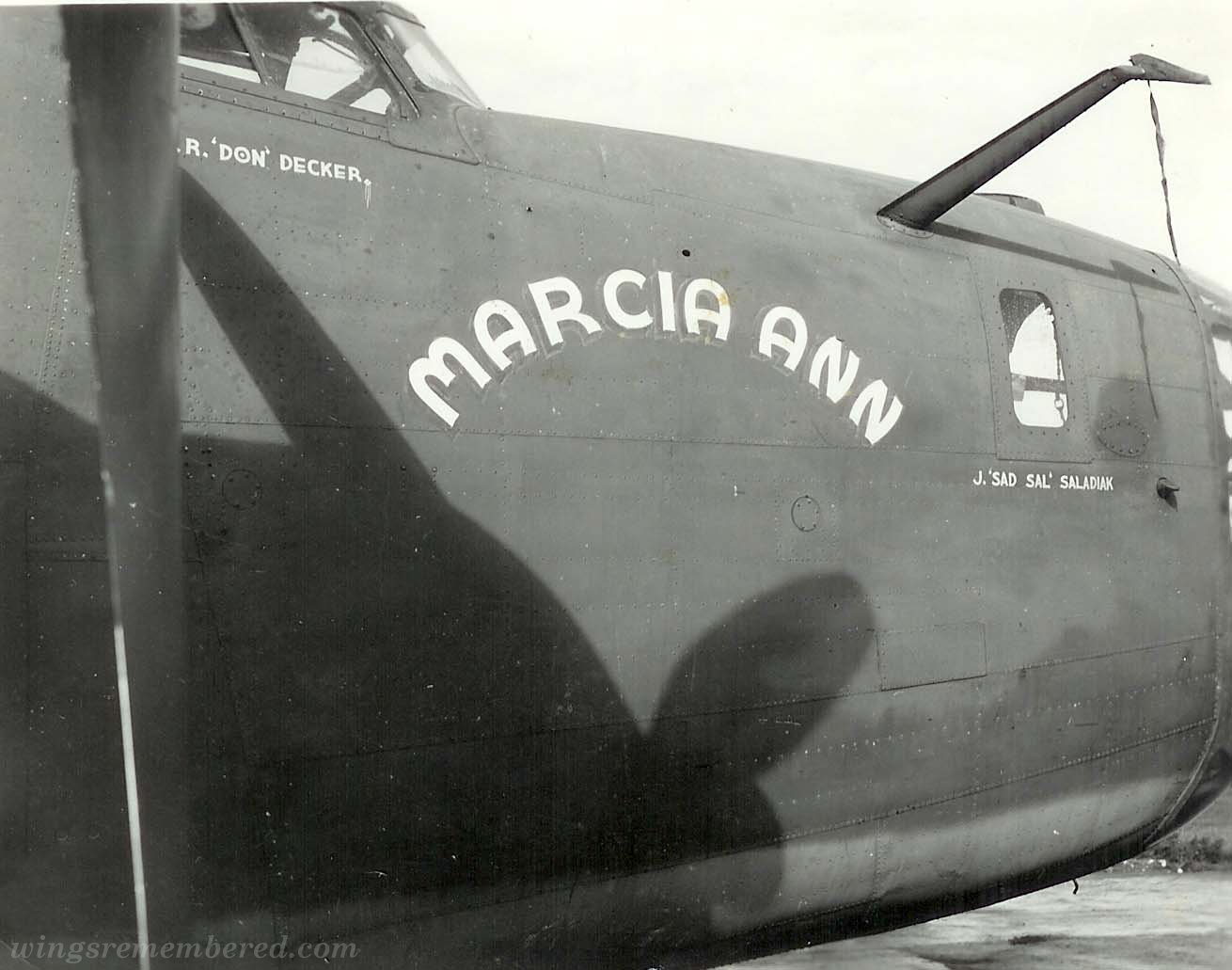 B-24 serial number 41-23918 “Marcia Ann” of the 44th Bomb Group 67th Bomb Squadron was shot down on 1 October 1943 on a mission to bomb the Messerschmitt Factory, located at Wiener Neustadt, Austria. Her crew that day included George Bronstein Pilot, Charles Erickson Co-Pilot, Jacob Cohen Navigator, William Archambault, George Berkstresser Engineer, George Click Radio Operator, Jack Shephard Gunner, Michael Prekopie Gunner, Harry Bolster Gunner, and Joe Mansfield Tail Gunner. Of these ten brave men Jacob and Jack were the only survivors.
B-24 serial number 41-23918 “Marcia Ann” of the 44th Bomb Group 67th Bomb Squadron was shot down on 1 October 1943 on a mission to bomb the Messerschmitt Factory, located at Wiener Neustadt, Austria. Her crew that day included George Bronstein Pilot, Charles Erickson Co-Pilot, Jacob Cohen Navigator, William Archambault, George Berkstresser Engineer, George Click Radio Operator, Jack Shephard Gunner, Michael Prekopie Gunner, Harry Bolster Gunner, and Joe Mansfield Tail Gunner. Of these ten brave men Jacob and Jack were the only survivors.
Bill Staggs P-51 Pilot 55th FG
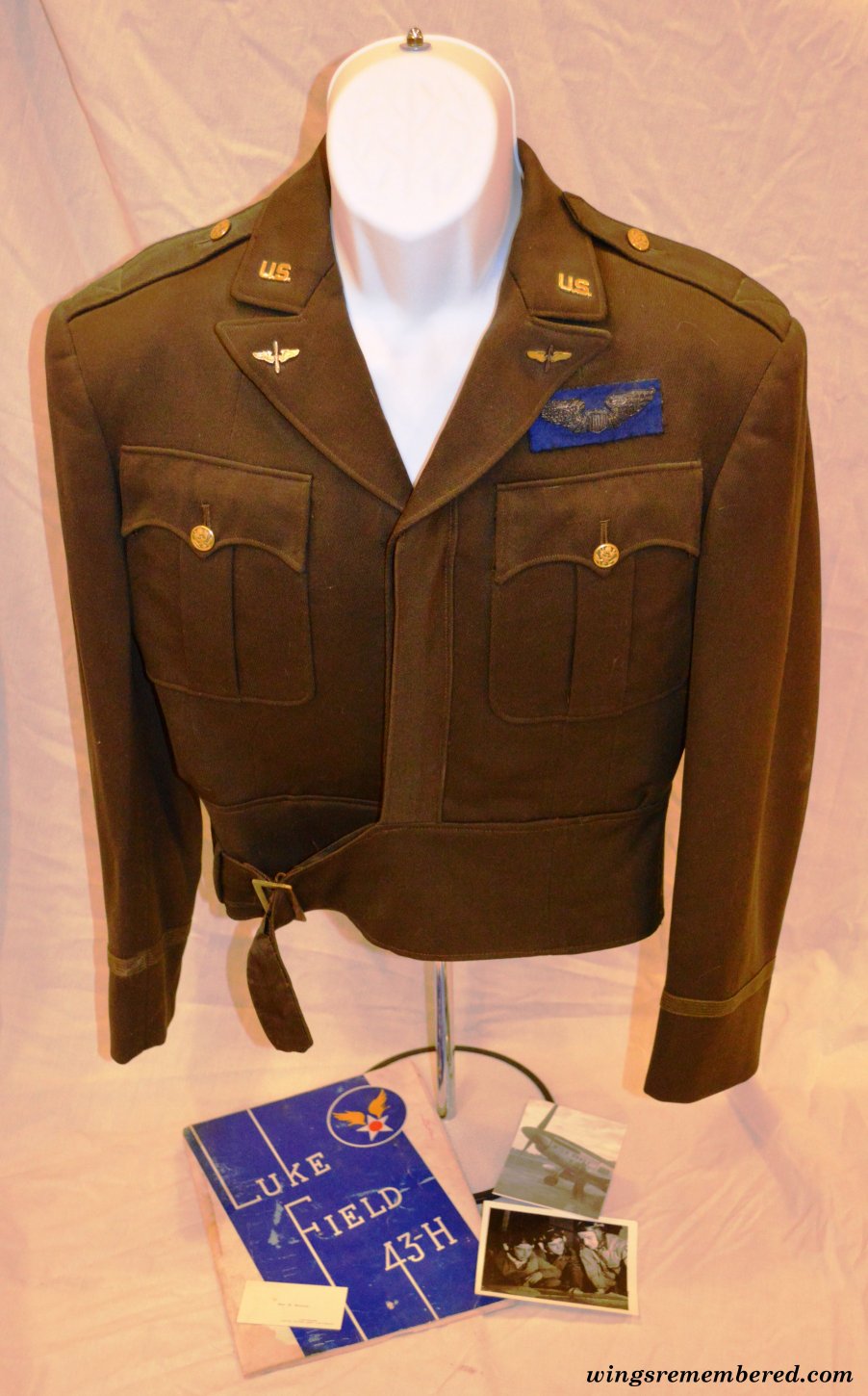 The jacket was worn by Capt. Bill Staggs a P-51 pilot with the 55th Fighter Group 38th Fighter Squadron. Bill's P-51 was named Wild Honey.
The jacket was worn by Capt. Bill Staggs a P-51 pilot with the 55th Fighter Group 38th Fighter Squadron. Bill's P-51 was named Wild Honey.
B-24 450th BG 42-52163 Crash Site
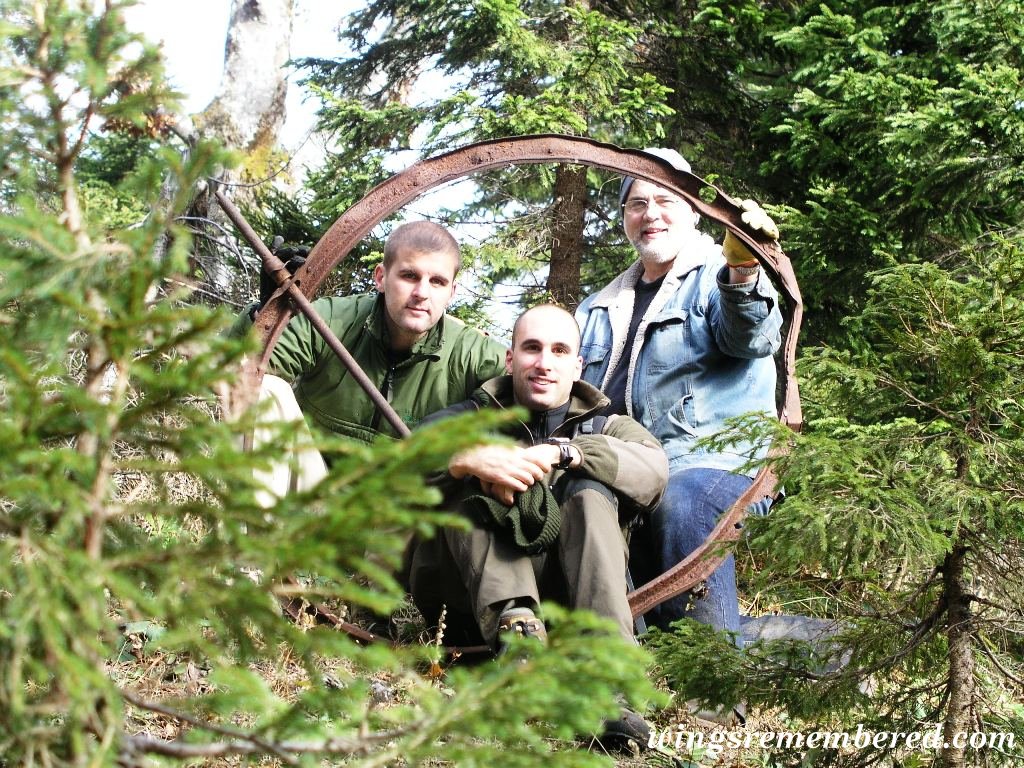 On 23 May 1944 the 450th Bomb Group's target was the Messerschmitt Aircraft Factory located at Weiner Neustadt, Austria. B-24 serial number 42-52163 of the 723rd Bomb Squadron was taking part in the mission. This B-24 named "Little Lady Joyce II" was attacked by German fighters in route to the target and shot down crashing on a mountain top. All of the crew got out of the plane with the exception of the ball turret gunner, Harry Stewart, a replacement for Frank Davis who was sick and unable to fly on that mission.
On 23 May 1944 the 450th Bomb Group's target was the Messerschmitt Aircraft Factory located at Weiner Neustadt, Austria. B-24 serial number 42-52163 of the 723rd Bomb Squadron was taking part in the mission. This B-24 named "Little Lady Joyce II" was attacked by German fighters in route to the target and shot down crashing on a mountain top. All of the crew got out of the plane with the exception of the ball turret gunner, Harry Stewart, a replacement for Frank Davis who was sick and unable to fly on that mission.
B-24 93rd BG 42-73507 - Turret Dome
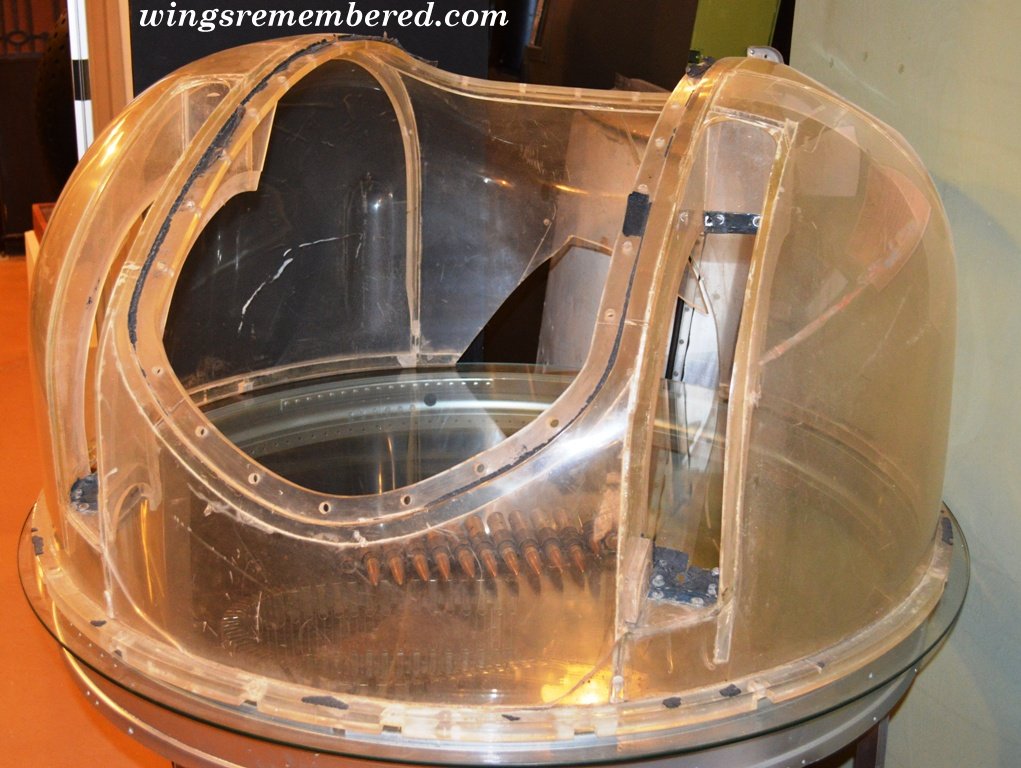 The B-24J serial number 42-73507 named "Sunday Girl" was with the 93rd Bomb Group 328 Bomb Squadron. On 30 January 1944 the target was Brunswick, Germany. This B-24 developed engine trouble in route to the target and turned back. On the way back they dropped their bomb load on another target and came under attack from a Flak Unit knocking out a second engine. The B-24 had to make a crash landing with all crew members aboard near Nijkerk (Gelderland), Holland. All ten men of the crew survived.
The B-24J serial number 42-73507 named "Sunday Girl" was with the 93rd Bomb Group 328 Bomb Squadron. On 30 January 1944 the target was Brunswick, Germany. This B-24 developed engine trouble in route to the target and turned back. On the way back they dropped their bomb load on another target and came under attack from a Flak Unit knocking out a second engine. The B-24 had to make a crash landing with all crew members aboard near Nijkerk (Gelderland), Holland. All ten men of the crew survived.
B-17 42-5943 97th Bomb Group 414th Bomb Squadron
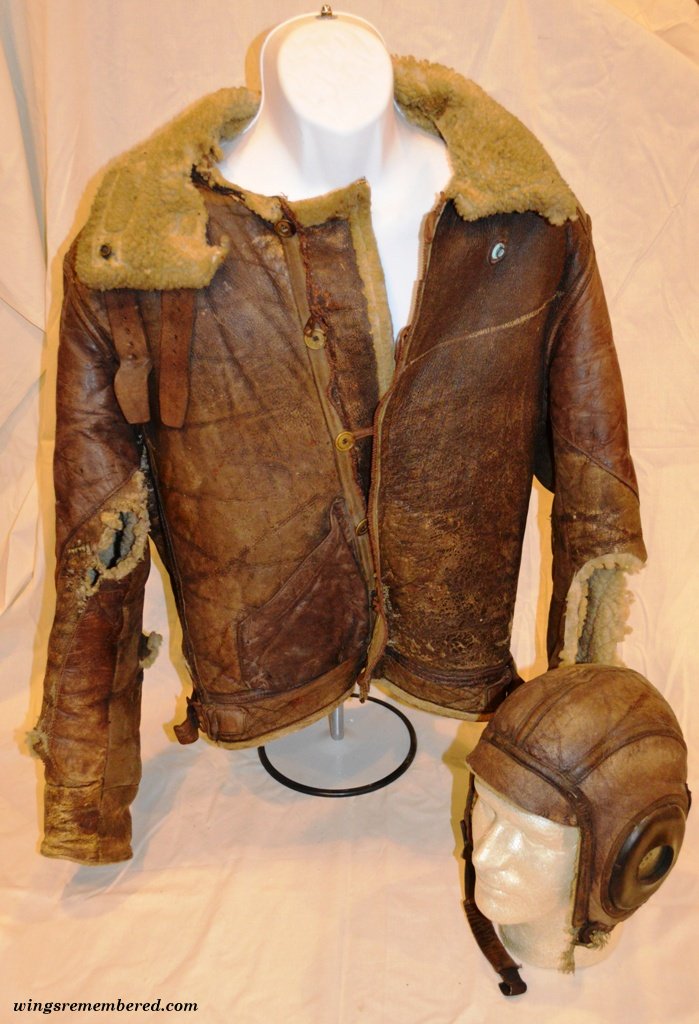 On 23 April 1944 the 97th Bomb Group's target was the German aircraft factory at Wiener Neustadt, Austria.
On 23 April 1944 the 97th Bomb Group's target was the German aircraft factory at Wiener Neustadt, Austria.
On this mission B-17 serial number 42-5943 of the 414th Bomb Squadron was attacked by enemy aircraft and hit by flak resulting in it crashing at Sieding not far from the target. Heavily damaged and still in flight the tail section of the B-17 broke loose and fell to the ground. The German photo shows the tail section where it landed.
Joe Hill Bataan Death March Survivor
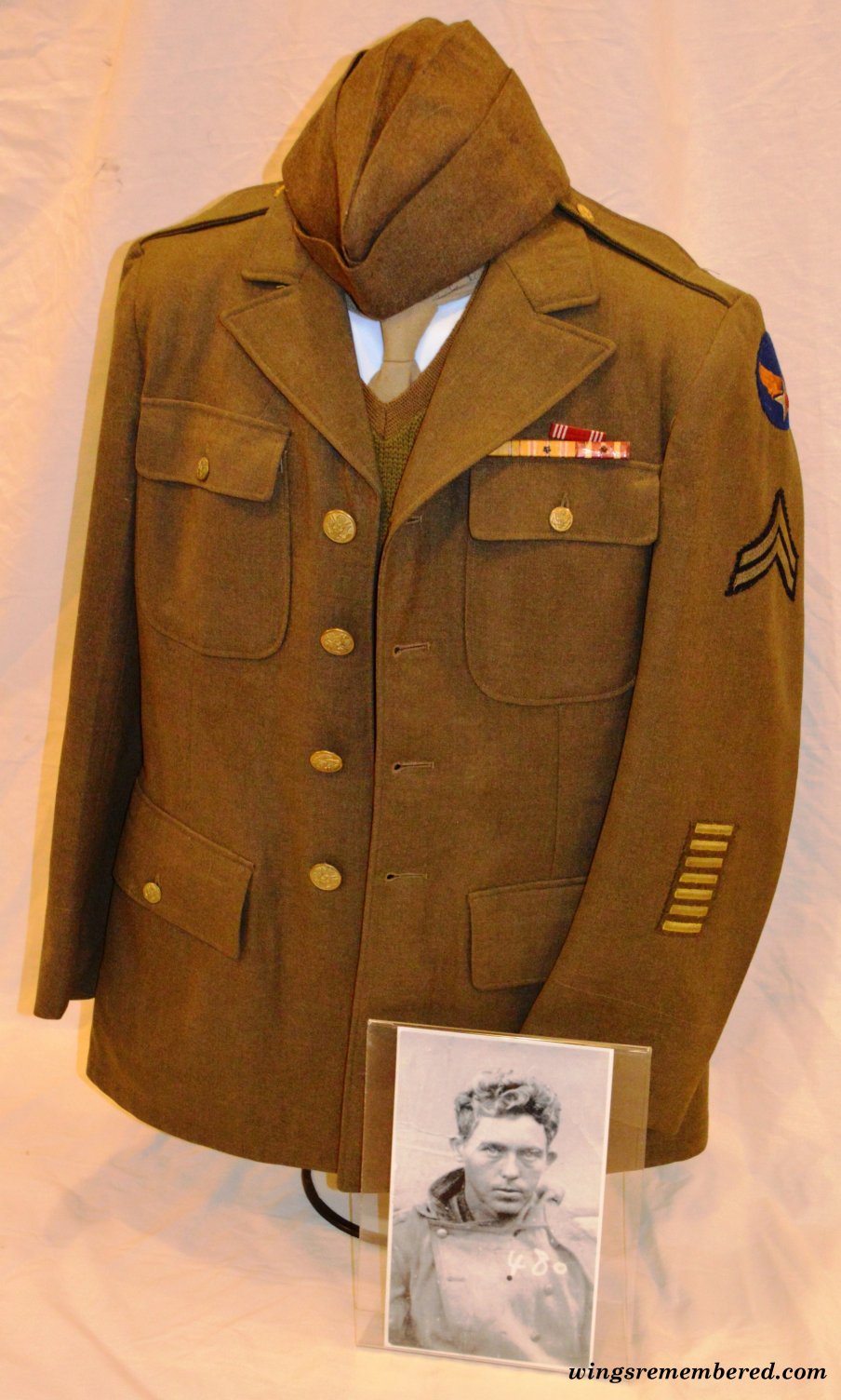 Joe Hill was a member of the Army Air Corps and stationed in the Philippines when Japanese forces took the islands at the beginning of World War 2. He survived the Bataan Death March and was interned in a POW camp.
Joe Hill was a member of the Army Air Corps and stationed in the Philippines when Japanese forces took the islands at the beginning of World War 2. He survived the Bataan Death March and was interned in a POW camp.
In October 1943 he was transferred to the Japanese mainland to Camp 5B located at Niigata, about 160 miles NW of Tokyo. As a POW he worked in the coal mines until the camp was liberated by US soldiers on 5 September 1945. He and his fellow POW's were sent to hospitals in Manila to begin the recovery process. Joe said he was there for about 12 weeks before returning to the US. This is the uniform he wore home.

